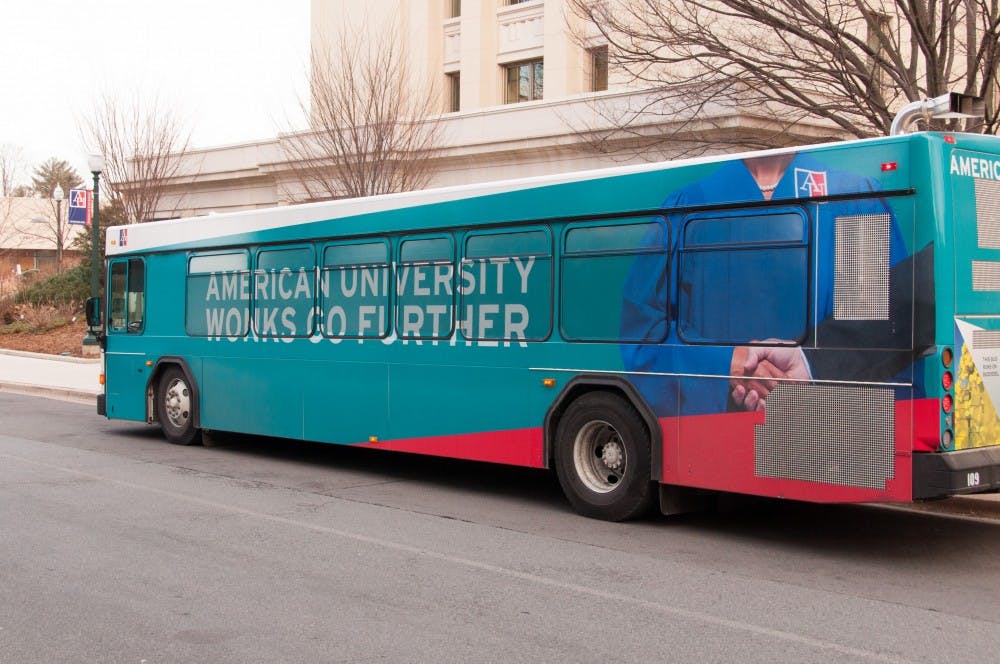Despite a nationally televised embarrassment and waves of student criticism, University Marketing Advisory Council has shown little sign of turning its back on the WONK campaign. The Eagle believes now is the time to put an end to WONK and start a new marketing strategy that students universally support.
The WONK campaign is not a byproduct of negligence, which many students are quick to assume. In 2008, the University Marketing Advisory Council hired the firm SimpsonScarborough to conduct two years of research on the subject in order to “improve awareness, perceptions, and pride among target audiences,” The Eagle previously reported. Their analysis included thousands of surveys taken by AU students, faculty, alumni, parents and prospective students. Teresa Flannery, AU’s vice president for communication, lead the the council’s effort after successfully pioneering the “Fear the Turtle” campaign for the University of Maryland.
The marketing world sees WONK as something to emulate, as evidenced by the numerous awards hanging in Flannery’s office. However, students and alumni have criticized the campaign repeatedly since its introduction in 2010. This newspaper has published at least 25 anti-WONK op/eds since its inception. Criticism reached a tipping point after Anderson Cooper’s New Year’s Eve blunder and AU alumnus Carter Gibson wrote a viral op-ed for InTheCapital.
Regardless of vocal criticism, Flannery and the UMAC have refused to put the brakes on WONK, citing survey data that show a majority of students and alumni believe the campaign ads have a positive influence on the University’s image. However, the full survey data were not released to The Eagle.
That majority, however, is only 40 percent of undergraduates and 42 percent of alumni. Roughly 60 percent of undergraduates and alumni do not believe the campaign represents AU in a positive manner.
Flannery’s response is understandable. This campaign is relatively young and extremely expensive. If survey data don’t show a clear trend of student disapproval, scrapping the campaign and starting from scratch is a significant risk. But relying too heavily on survey data would be a drastic mistake.
The real problem with WONK, which surveys do not begin to delve into, is that it attempts to summarize a remarkably diverse student body into one word. Sure, there may be “Policy WONK,” “Green WONK” and “Gender and Sexuality WONK” these titles are sweeping, misleading generalizations. They paint AU students as one-dimensional and ignore the artistic, socially dynamic qualities that we see on this campus every day.
The Eagle’s editorial board unanimously agreed UMAC should ditch the word WONK. Students have engrained a negative context into the word, which is not surprising considering how unpleasant it sounds.
Thus, we encourage UMAC to adopt a new marketing campaign that students identify with. WONK did capture the fact that AU students are hard working and dedicated to their field, but it did so with fake, idealistic characters. We are college students, not professionals who fit neatly into 10 categories.
We suggest a campaign that emphasizes each individual school’s tangible strengths. This would not only interest prospective students and give current students something to be proud of. We also suggest separate marketing campaigns for undergraduates and alumni, which is a strategy that has worked for Georgetown University.
University Communications will host a town hall on Feb. 28 that will aim to address student grievances with WONK. Students need to take advantage of this opportunity to voice their opinion on WONK and tell the University what they want.
We are one of the most politically active schools in the world. Our student body spans all 50 states and more than 130 nations. Show University Communications we are more than a just suit on the side of a bus. -E




